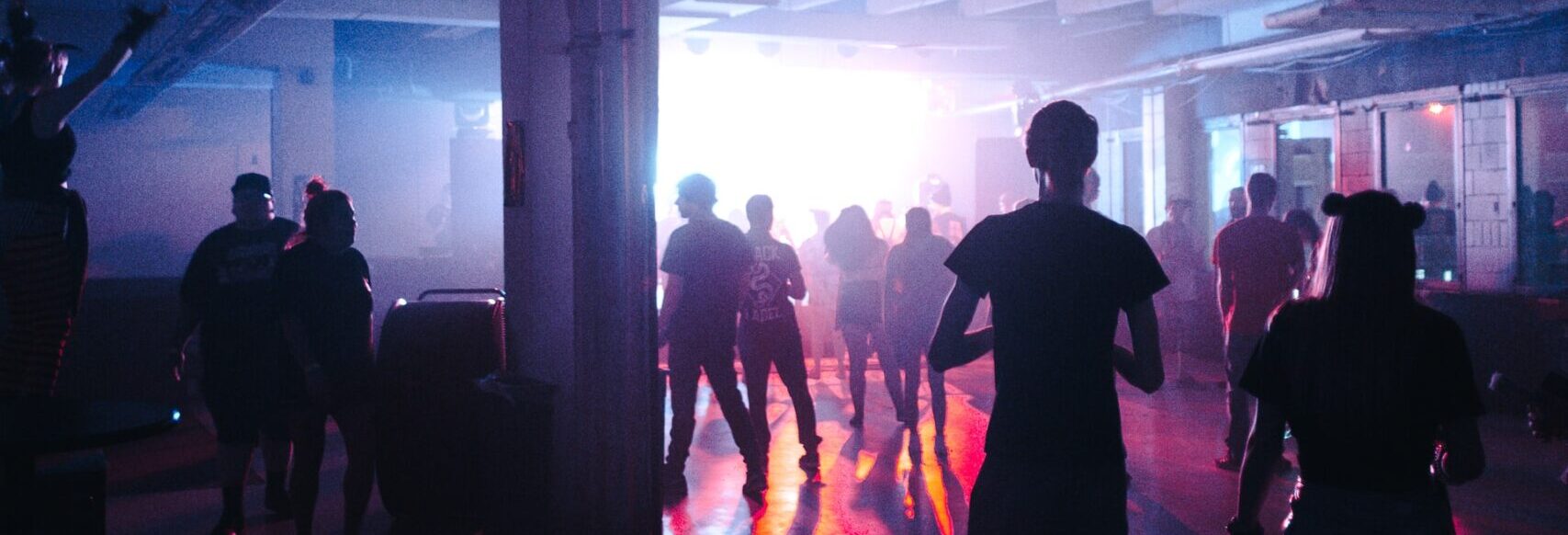This is a rough transcript of my talk at Most Wanted: Music Dial-in on July 20.
Just before the pandemic hit, I started a new project called Hard Dance Berlin.
My intention was to map out the local scenes of harder electronic music and try to bring them together more after I noticed that people like each other’s music, but rarely come together.
I wanted to shine a light on all the local events happening that cater to people who love those sounds and in many weeks found events on 4 of the nights. One week in February even had relevant events all 7 nights. Berlin 💁
But then it stopped. Abruptly. First the cancellations came from concerned organisers and then the lockdown happened and forced organisers who hadn’t caught up yet to also cancel their events.
My vision had been this:
Focusing on local allows people from various scenes to collaborate and create new scenes. By bringing audiences together, we’d be able to support each other. No more having to easyJet around Europe every weekend just to pay the bills as a DJ.
But in the middle of March there was no local to focus on. Everyone’s ‘local’ was reduced to staying at home. While everyone’s at home, focusing on local seems pointless, because what would once emerge as a local subculture from a record shop and venue in a particular city, now emerges through networks of artists on SoundCloud and Instagram.
Organisers and artists scrambled to get livestreams up and running, while the amount of daily new information added an edge of overload to a time of uncertainty.
Something happened since the initial lockdowns:
We went from something that was very hard to grasp and felt completely overwhelming to a certain calm. We know most countries have similar style lockdowns in place. While uncertainty and hardship is part of the daily reality for many of us, things have also become a lot more predictable than back in March and April.
Unfortunately, that is temporary.
We’re now seeing governments inside the EU giving negative travel advice to their citizens traveling to certain countries or regions in Europe.
The most publicised of these are the UK and Germany’s recent travel advice for Spain. Also in the past days, the Dutch government advised their citizens to avoid the Antwerp area after an outbreak, after which the Belgian government gave out a similar warning for The Netherlands.
So while we’re now carefully trying to get live music back on its feet, with proper safety measures in place, we’re seeing a landscape evolve that is as complicated as it was in early March when some cities and regions locked down, but countries were still open… but would they be by the time you had to be there?
Risk management
In order to maintain or increase certainty and predictability, we are seeing organisers of drive-in shows, the rare socially distanced event, and even many livestreams depend on local cultures: venues, crews, artists.
Now let’s imagine a few months forward: we’ll likely see a complicated landscape of lockdowns as countries, states, and cities deal with outbreaks. When all’s clear, events with proper hygiene may be permitted, but when an outbreak occurs the area might go into a form of lockdown at almost no notice.
So let’s imagine next summer. Let’s say that we have a vaccine by then – which is optimistic, but not unrealistic. Will that vaccine give long-term immunity or be more like a flu shot? Can we get it out to large enough parts of our populations – how quickly? And what about all the other places in the world? And then what does the world look like? We’ll know that this can happen again – as it nearly did with bird flu, swine flu, SARS, MERS, you name it.
And what about other crises? Every year we see record temperatures and more extreme weather events. Governments are discussing “green new deals” to reorganise their economies in order to address the crises of climate, waste, and biodiversity.
The new normal is not a static thing: it’s a future of new normals.
So that current local focus we’re seeing: it’s here to stay. It’s risk mitigation. That’s not to say your favourite bands won’t be coming to town anymore: they probably will. But since focusing on local scenes is one of the most effective strategies for mitigating risk in the face of these crises, we’ll see a renaissance of local scenes in an interconnected world – where scenes from Berlin, New Orleans, Shanghai, etc. can be made visible to each other.
By what we’re learning now about building online business models, we can make sure music won’t depend as much on cheap air travel as it used to — because eventually there probably won’t be air travel as cheap as it is now.
So I’d like to encourage everyone to think long-term and build global networks for local impact. Our future kind of depends on it.
Image above by Donny Jiang on Unsplash
New to MUSIC x? Subscribe to the free newsletter for regular updates about innovation in music. Thousands of music professionals around the world have gone before you.
